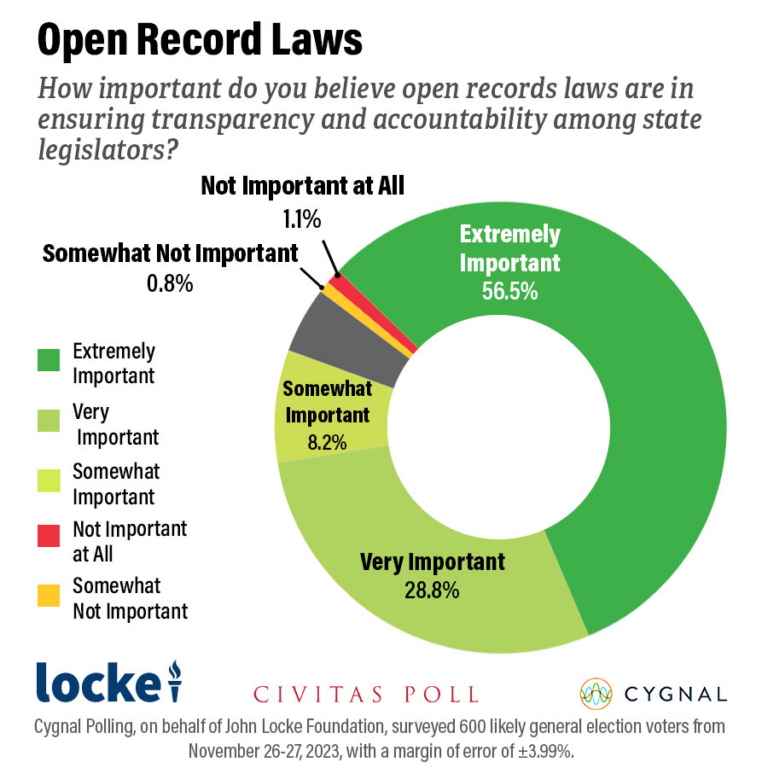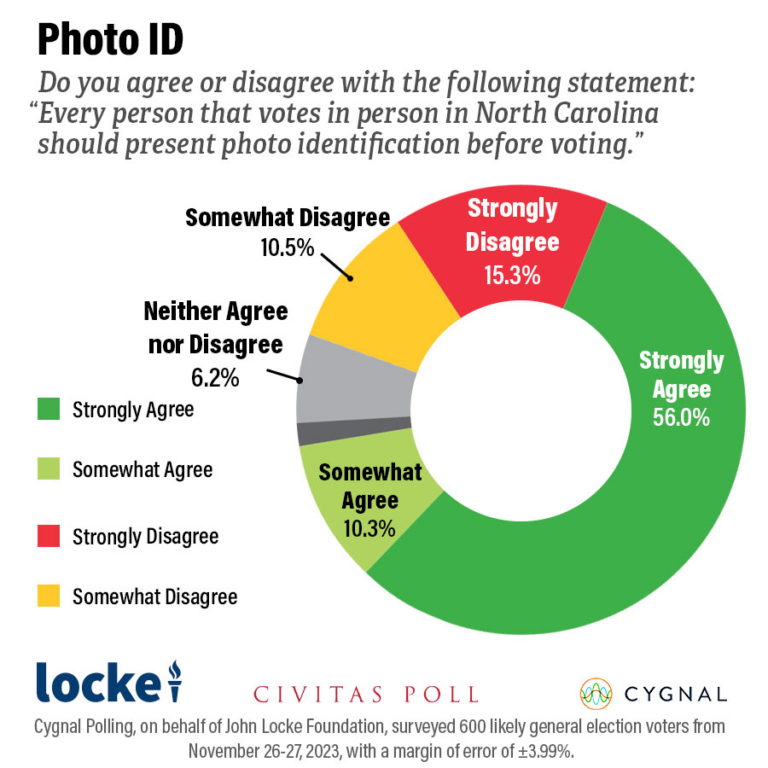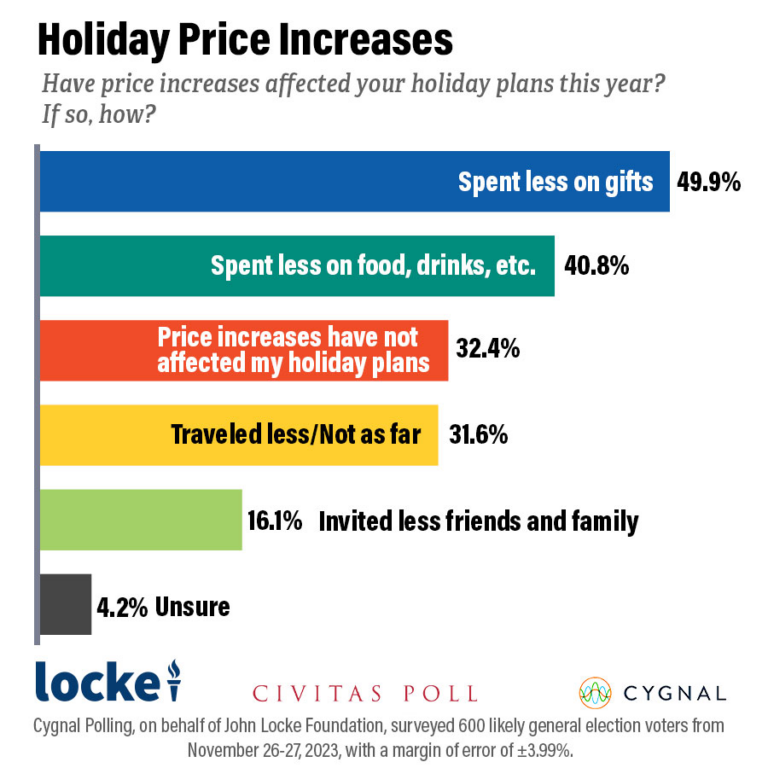
North Carolinians want transparency, according to the latest Civitas Poll. The survey found that 93.5% of likely voters in the state believe open records laws are important in maintaining accountability, with a majority believing they are extremely important. Support for open records is exceedingly bipartisan, with over 90% of both Democrats and Republicans recognizing its importance.
In September, the General Assembly passed a budget that included a provision to allow lawmakers to determine what qualifies as a public record and destroy the items that they unilaterally determine are not public records. The survey results suggest that voters would support repealing this provision, with 82.5% stating open records laws would improve their trust in state legislators.
“The overwhelming support for open records laws among North Carolinians, as evidenced by the Civitas Poll, clearly demonstrates a public demand for transparency and accountability in governance,” said John Locke Foundation CEO Donald Bryson. “Voters, generally, do not believe legislators deserve special privileges compared to other public servants. My advice to the General Assembly is to reverse the open records changes in this year’s state budget before it becomes a political liability.”
On the matter of the state legislature, respondents were asked who they would vote for if the 2024 election were held today. Republicans continue to lead in the generic General Assembly ballot, but the margin has dropped noticeably, from 6.1 points in September down to 1.1 points this month. A slim plurality of 44.7% said they would vote for a Republican candidate in the state legislature, while 43.4% said they would vote for a Democratic candidate. In a generic Congressional race, Republicans hold a slightly larger lead at 46% to Democrats’ 43.4%.
Gubernatorial approval ratings are similarly tight, with 44.4% of voters approving of the job Gov. Roy Cooper is doing in office and 42.4% disapproving. The front-runners in the race to assume the governor’s mansion appear to be Lt. Gov. Mark Robinson (R) and Attorney General Josh Stein (D). Robinson saw the highest favorability in the poll at 27.7%, with Josh Stein closely behind at 25.8%. North Carolinians have little familiarity with the remaining candidates for governor, with over 70% of voters stating they had never heard of Justice Mike Morgan or State Treasurer Dale Folwell. Republican candidate Bill Graham has slightly better name recognition (52.6% unheard of) despite being the newest candidate to enter the race and having never held a statewide elected office.
On a national level, President Biden’s approval ratings remain underwater by 22.1 points, with only 36.5% of North Carolinians approving of the job he is doing in office. The share of voters who believe America is on the right track is even lower at only 28.5%. This does, however, mark a 6.5 point increase from September.

This year’s election was the first to implement voter I.D. in the state. The law remains popular, with two-thirds of voters believing every North Carolinian should be required to show a photo identification to vote. Support is nearly unanimous among Republicans (96%) and high among registered Independents (67%). However, Democrats are more divided on the issue at 39% support and 47% opposition. The vast majority of North Carolinians (83.7%) do not believe voter I.D. makes it more difficult to vote, and most say that voter I.D. increases their confidence in elections (64.2%). Approximately a quarter (23.8%) say it neither increases nor decreases their confidence, and less than 10% stated it decreases their confidence. Self-identified liberals are most likely to believe it makes no difference (51%), with 22% saying it makes them less confident.
“It’s encouraging to see that most North Carolinians, regardless of their political leanings, do not view voter I.D. as an impediment to voting,” continued Bryson. “Many folks’ trust in the ballot box is waning, so we must continue implementing measures that regain voter confidence and reinforce election integrity for the sake of our democracy. Voter I.D. does that.”

With the November elections over, North Carolinians are setting their sights on the holidays. While nearly everyone surveyed plans to celebrate a holiday like Christmas or Hanukkah (94.3%), less than a third are planning on traveling this year. Rising prices are part of the reason, with 31.6% of participants saying inflation led them to travel less or not as far this winter. Half of North Carolinians said inflation left them with less to spend on presents this year, and 40.8% said they had less for food, drinks, and other party supplies. Young women were the most likely to say they were spending less on gifts this year (60%), while men 65+ were the least likely to modify their Christmas list (25%). Less than a third of participants said their holiday plans were unaffected by inflation.







